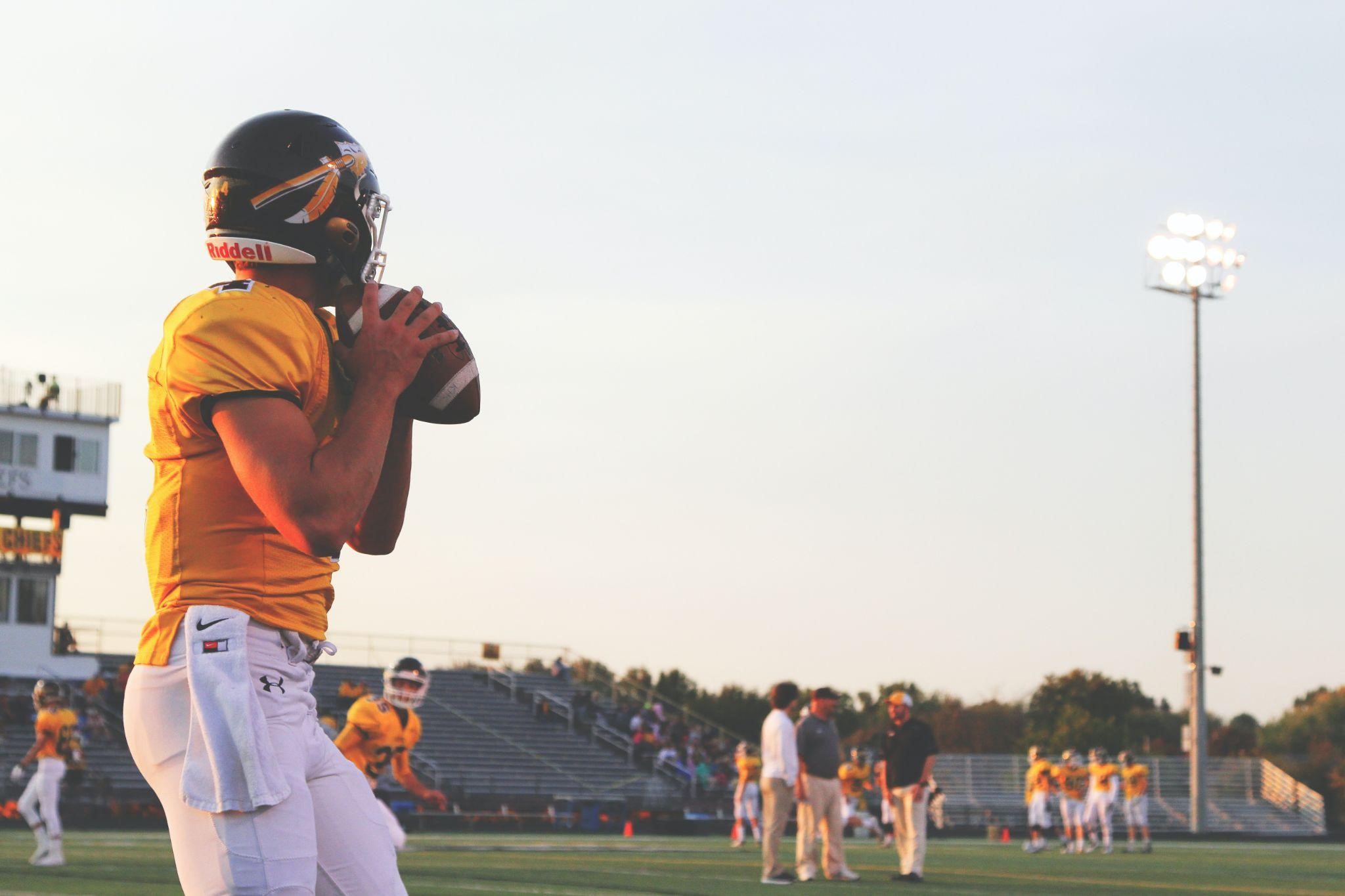
Game day in college football is an experience like no other, where the echo of cheers fills the air, and the spirit of competition ignites the hearts of thousands. It’s a time when campus legends come alive, and longstanding traditions set the tone for an electrifying atmosphere. These traditions, ranging from iconic chants to awe-inspiring pre-game rituals, are not just sideshows; they are integral to the pageantry that is college football, setting it apart from any other sporting event in the world.
The tapestry of these game day customs is woven with the threads of history, school pride, and the collective spirit of the institutions they represent. Every ritual, from the mascot’s dance to the lighting of victory flames, serves to unite students, alumni, and fans in a shared identity that is as much a part of the game as the scoring of touchdowns. These traditions transform the stadium from a mere venue of sport into a living museum of moments and memories cherished through generations.
Understanding these customs is essential for those who partake in the lore of college football, be they lifelong fans or newcomers to the spectacle. As professional term paper writers meticulously research their subjects to provide insight and context, so too must we delve into the history and emotion behind these game-day phenomena to fully appreciate their impact. As we peel back the layers of these rituals, we uncover the heartbeat of collegiate athletics and the communal bonds that make each tradition a cherished part of the college football narrative.
The Roots of Game Day Traditions
The origins of college football traditions date back to the late 19th and early 20th centuries, a period when the sport itself was finding its footing in the American collegiate landscape. Early customs were often spontaneous—created by students and fans eager to show support for their fledgling teams. As the popularity of the sport grew, these customs became ingrained, transforming into the elaborate spectacles we see today.
Many traditions have a tale to tell, steeped in the victories and defeats of their alma mater. Some arose from historical events at the schools, such as legendary games or famous alumni contributions, which were then commemorated annually. Others were born from the rivalry, with specific traditions tailored to certain opponents, creating an additional layer of anticipation for the big games. Over the years, these traditions were passed from class to class, becoming as much a part of the college experience as the academics themselves.
The legacy of these traditions is maintained through the concerted efforts of the college community. Alumni play a crucial role, often returning to participate and relive the glory days, ensuring that the customs they once helped shape continue to thrive. The historical roots of these traditions serve not only as a bridge between past and present but as a foundational element of college football’s enduring allure.
Pre-Game Rituals and Celebrations
Hours before the kickoff, parking lots and fields around the stadium metamorphose into bustling hubs of celebration known as tailgates. Here, a culinary mosaic unfolds as grills sizzle with local delicacies, a testament to the regional pride that flavors college football. From Southern barbecues to Midwestern brats, each tailgate offers a gastronomic prelude to the day’s main event, setting a convivial mood among fans clad in their team’s colors.
Amidst the feasting and festivities, the soul-stirring sounds of marching bands practicing their routines can be heard, with tubas and snares providing the soundtrack to game day. These bands, often the pride of their institutions, are not just musical ensembles; they are keepers of tradition. Their halftime performances are highly anticipated, but it’s their renditions of fight songs—anthems known to every true fan—that really stir the heart. These songs often date back a century or more, each with a story, echoing triumphs and tribulations of seasons past.
Peppered throughout the tailgate are the spirit rallies and pep talks, where coaches and players might appear to thank fans for their support and to stoke the fires of excitement. The speeches given, brimming with passion and pride, are designed to fortify the connection between the team and the community, reminding everyone that they are a part of something larger than themselves. This shared purpose becomes palpable, binding fans in collective anticipation and setting the emotional stage for the spectacle that is to follow.
In-Game Traditions
Once the kickoff launches the game into full swing, the traditions continue to unfold. In pivotal moments, the stadium might erupt in a unified chant or cheer specific to the scenario on the field. Third-down bells, touchdown songs, and defensive stances often have their own unique calls that engage the entire stadium. These traditions keep the fans invested in every play, making them feel like they’re a direct part of the game’s ebb and flow.
The halftime interval offers its own spectacle—the marching bands take center stage. From intricate formations that tell stories to the performance of traditional and contemporary hits, the halftime show is a hallmark of college football tradition. It’s a display of pageantry, precision, and musical prowess that continues to be a major draw for fans.
Superstitions also come into play during the game. Whether it’s a specific hat that must be worn for good luck or a ritual that must be observed after every score, these superstitions are taken seriously by fans who believe their actions have the power to sway the outcome on the field. This magical thinking, while not based on logic, adds another layer of engagement and personal tradition to the game day experience.
Post-Game Celebrations and Rituals
The final whistle doesn’t signal the end of traditions but rather ushers in a new set. For the victors, the celebration might involve the singing of the alma mater or fight song with the band and fans in a display of unity and triumph. Many teams have a tradition of heading to a particular section of the stadium to salute their supporters, recognizing the role that fans play in their success.
Trophy presentations on the field or in the locker room allow players to revel in their achievements, with the game’s MVP often hoisted onto the shoulders of their teammates. Even in defeat, teams often gather to sing the school song, showing resilience and school pride despite the outcome. These post-game rituals serve as a closure to the day’s emotional journey and a testament to sportsmanship and respect for the game.
Some traditions involve fans as much as the players. Storming the field after a major upset, for instance, has become a common sight, embodying the sheer joy and release of pent-up excitement. In more structured celebrations, fans may gather around the team’s exit or at a local landmark to continue the festivities, sharing their joy or commiseration in the company of fellow supporters.
The Future of Game Day Traditions
As with any living practice, game day traditions evolve. The customs that delight today’s fans may see adaptations as colleges look to the future, integrating technology and new media while remaining rooted in the customs that have defined them for decades. Social media has already begun to play a role in spreading and reinforcing these traditions, creating digital campfires around which the global community of fans can gather. The challenge and opportunity lie in preserving the core of these traditions while allowing them to grow and embrace new generations of fans.
While some fear that technology might dilute the personal connection that is the hallmark of college football, others see it as a means to enhance and share the communal experience with a wider audience. As these rituals adapt and grow, they ensure that the essence of college football—its heart and soul—continues to thrive in an ever-changing landscape.
Takeaway
As the shadows lengthen on game days across the country, the echoes of traditions, both old and new, reverberate through the college football world. These customs, passed down through generations, remain as much a part of the sport as the players on the field. They remind us that college football is not just a game but a living history of communities and the generations that have supported them. Much like seeking the best paper writing service to encapsulate the nuances of a complex topic, crafting the narrative of college football’s game day traditions requires a delicate balance of respect for the past and openness to the future.
Passionate pre-game rituals, unifying cheers, and post-game ceremonies show the deep connections between tradition and the spirit of college football. As we look forward to the seasons to come, we recognize that these traditions will continue to serve as the heartbeat of college campuses on game day, uniting fans, players, and coaches in a shared love for the game. It is this enduring spirit that will ensure college football remains a cherished part of American culture for generations to come.
Unleash the Action: Sign up for XFL Insider and Fuel Your Passion for Football!

XFL Kickoff
XFL News Alerts
USFL and XFL Merger: A Deep Dive into the Historic Collaboration
Latest Podcast
-


XFL Podcast
/ 12 months agoXFL-USFL Merger Insights: Houston’s Future, Draft News, Player Movement – Ep. 216
Welcome to Episode 216 of the “XFL Week In Review,” your premier destination for...
By Mark Perry




